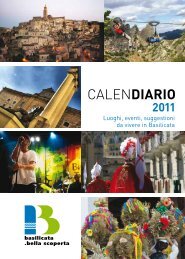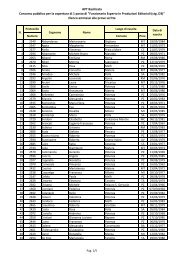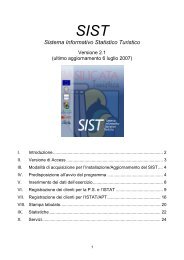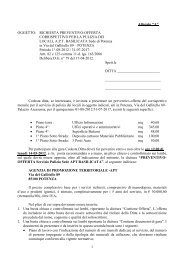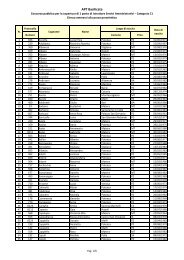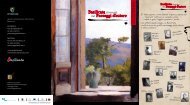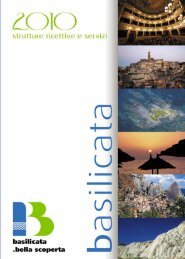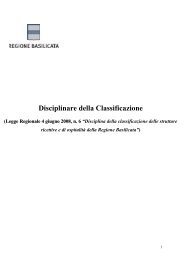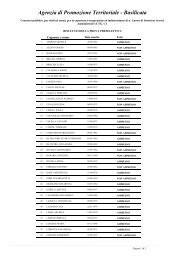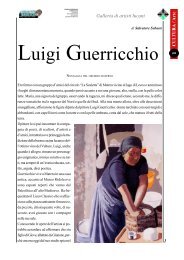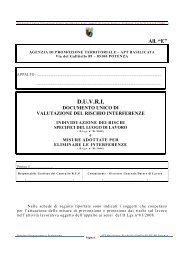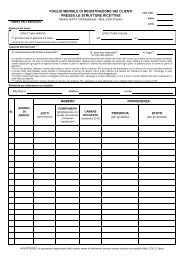Archeonaut - APT Basilicata
Archeonaut - APT Basilicata
Archeonaut - APT Basilicata
- No tags were found...
Create successful ePaper yourself
Turn your PDF publications into a flip-book with our unique Google optimized e-Paper software.
enosaVenosa enjoyed fortune and prosperityfrom the Republican period to the DarkAges, with otium and negotium, affairsof state and amusements, of which theVenusians, like the Romans of the Citywere also untiring enthusiasts. Perhapsthe baths were the best indication of thedegree of Romanisation in the variousplaces throughout the Empire, andVenosa was not found wanting in thisrespect. The dolphins and moray eelsthat swim in the waters of a mosaicsea on the floor of the frigidarium arereminiscent of the bodies of bathingmen intent on discussing politicalaffairs, business and programmes forthe evening in this peaceful colony ofRegion II of the Empire.The spa complex in Venosa invites usto imagine the vapours that rose fromthe praefurnia, where wood was burntthat released hot air, towards the tubsof the calidarium, or to picture thedaily life that went on in the variousdomus not far from the baths. But theNational ArchaeologicalMuseum, interiorVenosians also loved gladiatorial gamesand the animal hunts (venationes) thatwere staged in the Amphitheatre, whichtoday is separated from the ancient cityby the provincial road. This dates to the1st century AD and is divided into threesections, known as caveas: the ima(lowest), the media and the summa.A funerary monument is still visiblealong the via Appia that, according tothe sources, is the tomb of the consulClaudio Marcello, who died in 208 BCbetween Venosa and Banzi (the RomanBantia) during the 2nd Punic war.Ancient Venusia can be partiallydiscerned today by walking aroundthe archaeological area, alongsidethe Incompiuta monumental complexand the Abbey of the Trinity. The threelevels of the Abbey’s construction weavea thread of a history that begins inthe 5th century AD and arrives at theMiddle Ages, when it received the bodyof Robert Guiscard, the founder of theNorman kingdom.Tu ne quaesieris, scire nefas, quem mihi, quem tibifinem di dederint, Leuconoe (…)dum loquimur, fugerit invidaaetas: carpe diem quam minimum credula postero.THE SINGER OF CARPE DIEMHe was only 10 years of age when hisfather, a freedman (emancipated slave),sent him to Rome; but Quintus HoratiusFlaccus always kept Venosa, where hewas born in 65 BC, in his memory.In his odes he celebrates the places ofhis birth, remembering the sweetnessof its woods, around Mount Vulture,where as a child he hid to escape from(Aus den Oden. Quinto Orazio Flacco)Do not ask, for it is not granted to knowwhat will be my destiny or yours (...)as we speak envious time already fleesgrasp the moment and believe as little as youcan in the future.Statue of Quintus Horatius Flaccus in Venosahis nursemaid.Horace drifts through the historiccentre of Venosa, in a literary journeythat evokes his verse, his precepts oflife, his melancholy, his friendship withMecenate and Augusto, and his searchfor the “aurea mediocritas”, simpleharmony in all things.26 27



